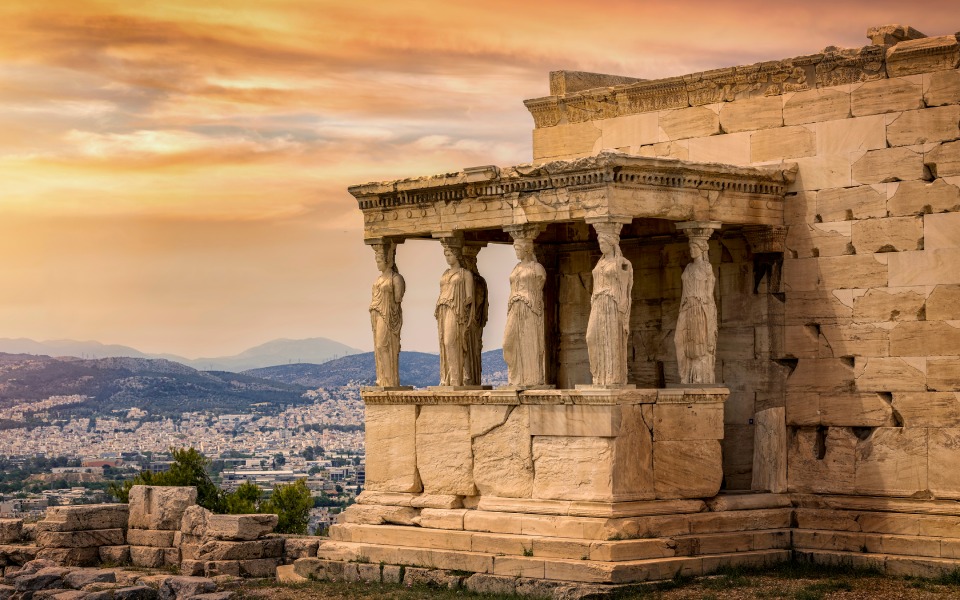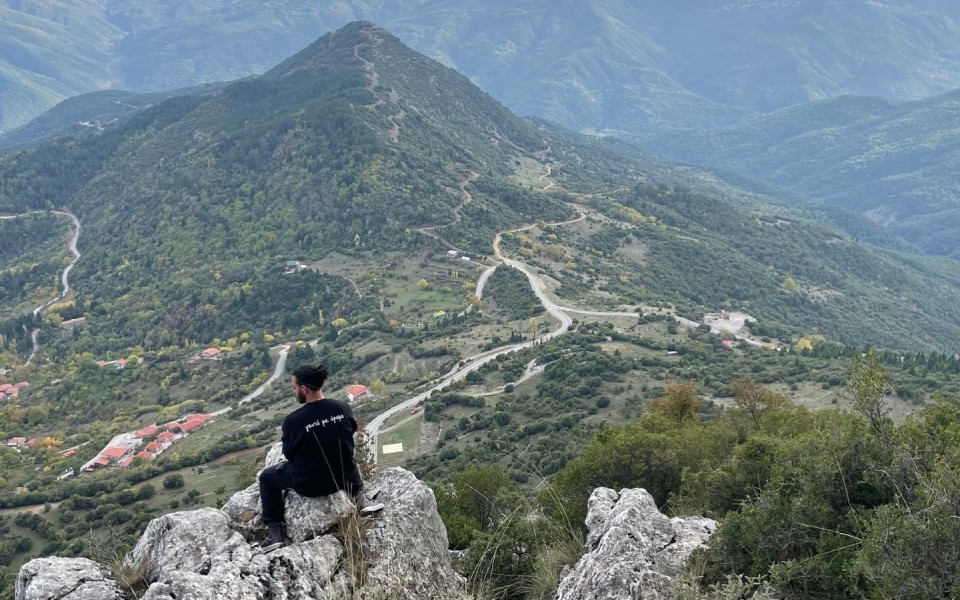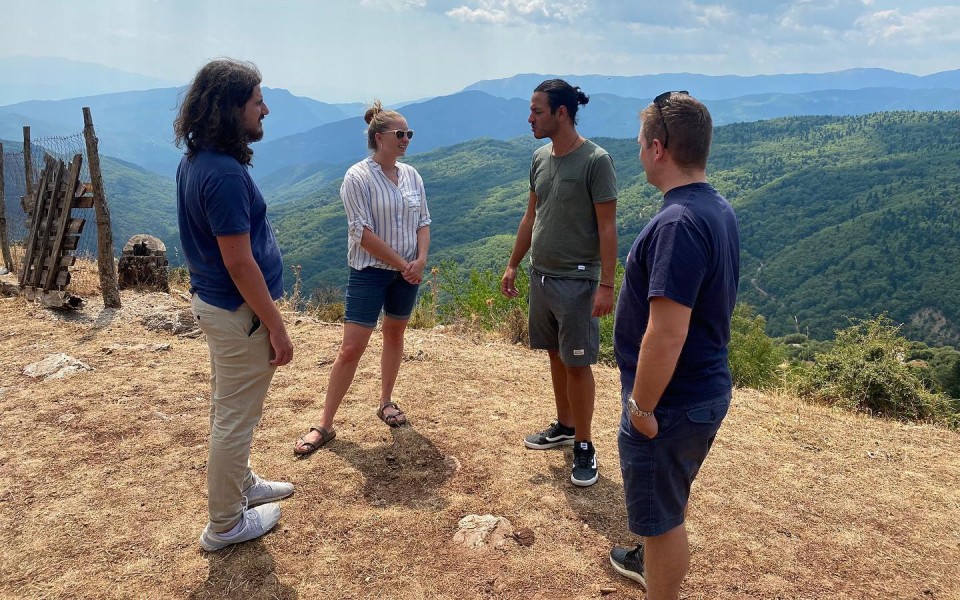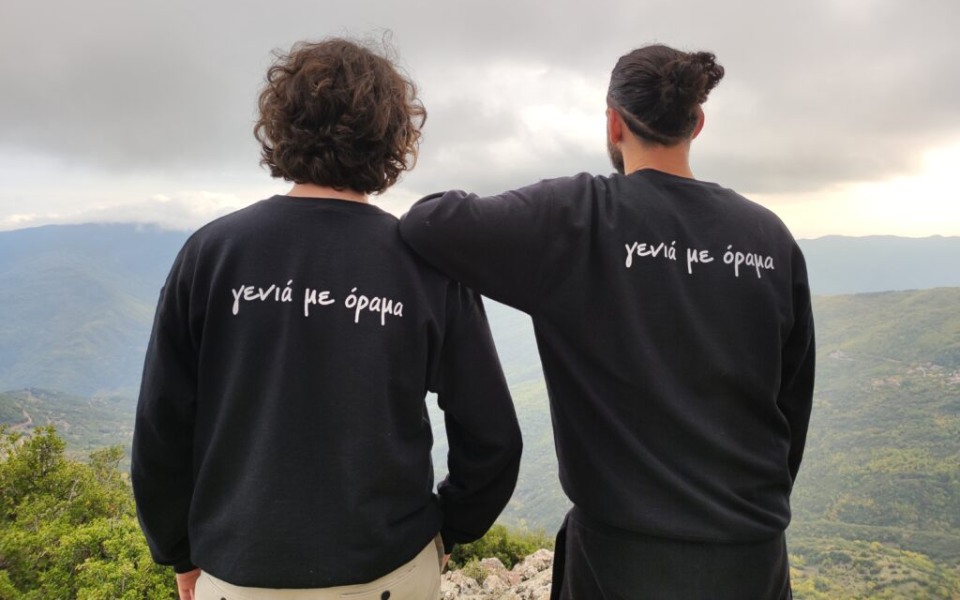Top 5 Archaeological Discoveries in Greece in 2024
From a mysterious Minoan structure to...

The Erechtheion, on the north side of the Athenian Acropolis.
© Shutterstock
Jacques Cousteau began his underwater research which led to the conclusion that the planet was in distress in the 1950s. Earth Day, the first mass recognition that something needed to be done about the condition of the environment, was first marked in 1970, 52 years ago this April. Then came Greenpeace a year later. And in 2006 there was Al Gore’s primal scream about the baking of the planet, which garnered millions of devotees and an Academy Award. Sadly, since then, the environment and our climate have continued to worsen.
Greece is particularly vulnerable and has a lot to lose because of climate change. It is clear that the top-down approach of past governments is not enough, and like many other countries, civil society will have to get involved if the country is to inch closer to, and take full advantage of, the opportunities that emerge with sustainable development.
Enter Greece’s Ecogenia.
It is a new model for Greece. It is an exciting model. And it has a bottom-up approach to the environment and the climate by engaging and educating young people in solving the problems in their communities, to help ease Greece’s sustainability and climate challenges – not waiting to be rescued by the government or past generations, but pulling their sleeves up and getting to work to build their own future.

© facebook.com/ecogenia.org
Ecogenia is the brainchild of 34-year-old Greek-American Lia Papazoglou, a confident, quick-to-smile woman who is full of energy. She is determined to help Greece with a lead-by-example strategy that ultimately positions the country as a model in sustainability and climate action.
Her roots in Greece are deep. Her father, born and raised in Xanthi, also has roots in Katerini, near Mount Olympus. Papazoglou still has family there, and an ancestral home that she has returned to again and again over the years. Like so many Greeks of the diaspora, her love for Greece is eternal and the need to return is strong. Educated in both international affairs and environmental sustainability, she joined an American civic service program called AmeriCorps when the economic crisis of 2009 hit. This is where her idea for Ecogenia began to marinate. She started to realize that Greece did not have the same ethos in terms of civic service and giving back to their communities.
“I love Greece. And like so many of us who have lived away from Greece, I have always felt that pull back to the country. I also wanted to do something for Greece – to create something that would help Greeks, something to be proud of,” Papazoglou explains.
Given her experience organizing and mobilizing volunteer programs and developing initiatives for companies big (think Google) and smaller (a nonprofit organization in Oakland, California, focused on solar), she thought: What about a countrywide paid civic service program in Greece for young people to learn about the environment, clean it up, and build a sustainable future for the country? With friends encouraging her and feeling empowered by her own experiences, actually doing something about the problems that America faced at the time, she and her American husband, who designs sustainable packaging for commercial products, moved to Athens.

© facebook.com/ecogenia.org
Papazoglou explains, “Greece has so much to offer and there is a real opportunity here to build an army of sustainability-minded young people who will turn their challenges into opportunities by acting for their community.” Papazoglou is not alone in building Ecogenia.
She met 34-year-old Erika Spagakou through a mutual friend. Also educated in international politics and sustainability, the economic crisis in Greece drove the native Athenian, who has a razor-sharp intellect and a quiet longing for her homeland that is palpable, to a job far from home, in Abu Dhabi. Today she works for a multinational firm, where she acts as a strategic communications adviser for entities such as Abu Dhabi’s national energy company. She had worked in the press office of Greece’s Ministry of Tourism, but that was before the economy shrank and jobs dried up. For her, meeting Papazoglou and building Ecogenia together fulfills a dream that had been brewing for the past 12 years: to return home and help build a more viable Greece that lives up to its potential.
“Greece has so much potential and so much to be proud of. But to rely on our history and our identity as Greeks from antiquity is not enough. We have to reframe our identity for what we face today. And the climate, as an existential threat that deeply concerns young Greeks today, presents a timely opportunity for Greece to transform itself by championing climate action in Southeast Europe,” she says.
The dynamic team of Papazoglou and Spagakou are building Ecogenia from the ground up – that includes courting donors big and small, writing grants, engaging companies and schools like the American College of Greece, where Ecogenia will work with its Environmental Studies program to offer events on campus, educate the student body and recruit students to work throughout the country with Ecogenia.
One of Ecogenia’s pilot projects is working in the region of Dorida, which is nearer to Patra than Athens. A team of young people will begin the work of building trails for hiking around Dorida, which will also help connect a network of local villages that have been, to date, cut off from each other. This effort will spark ecotourism in the area and hopefully draw more people to other parts of Greece, which are beautiful in a different way to many of the popular and fragile islands that are often overrun in the summer.
Ecogenia is also planning after-school enrichment programs to educate younger, school-age children about what they can do about sustainability and what it means to be a citizen. Spagakou says: “Look, citizenship itself is a political act. What can I do to change things? How can I be empowered to make a difference? And we Greeks are very political beings. So, what better place to foster a culture of civic engagement than Greece?”

© ecogenia.org
The organization has big plans for the future. It will train for disaster preparedness and relief efforts. Think about the fires that have ravaged parts of Greece. It plans environmental conservation efforts and will mobilize sustainability efforts in local communities and villages across Greece. “Is Greece actively composting? Efficiently recycling across the mainland and on the islands? How can we help our islands, for example, to make sure that tourism, which is a big driver of the Greek economy, does not leave them more vulnerable every year? And how can we better manage all that trash which is generated every season by millions of tourists who visit every year, and make tourism sustainable? We need to protect our vast natural resources,” Spagakou says. “And we need to use them to our advantage,” adds Papazoglou.
While Ecogenia has already attracted the attention of influential people in Greece and the diaspora, the organization is constantly looking for new partners and backers who want to help make their vision a new reality for Greece. In doing so, they are bringing a very collaborative approach to the third sector in Greece, fostering synergies with other nonprofits and working to help elevate the nonprofit culture in the country by mobilizing more resources to amplify the great work being done by other organizations in the climate and sustainability space.
In addition, they will be collaborating with youth exchanges across Europe through the European civic service collective, which will mean hosting young people from other countries in Greece and sending young Greeks to other civic service programs in Europe so that they can network and learn from each other. Papazoglou says: “We want to teach young people that service to society, to their country, and to their communities and villages is both personally gratifying and will make a long-lasting difference. We are promoting high-impact practices.”
Each cohort group, no matter the project, will have two weeks of training. The first will be on sustainability and civic engagement. The second week is specific to the project they will be working on. Additionally, students will have one day a week of professional development on a variety of topics. Ecogenia also plans to continually engage a growing alumni base, and to help plug them into green jobs, actual employment, wherever and whenever possible.
Ecogenia is young and vibrant. It represents a new Greece, a Greece that lives up to its potential, which includes becoming a world leader, an example to follow in fighting the climate crisis. It is why Ecogenia was invited to a climate summit as part of the prestigious Athens Democracy Forum last October at the Hotel Grand Bretagne in Syntagma Square. Democracy only works if its citizens participate. The act of voting is only a small fraction of our obligation as citizens of any democratic country. People must participate in order to enact any changes they may want to see.
To Spagakou’s earlier point, Greece can no longer lean solely on its identity from antiquity, whose people created democracy and a participatory society in the first place which flourished so many millennia ago, but should draw from it as inspiration. The very notion of citizenship came from their ancestors – it’s in the DNA of Greeks from whom they can draw a line to what they do today.
Like Socrates, who considered himself a citizen of the world, young Greeks should consider themselves the same while doing something for their country, giving hope and direction to other youth around the globe.
Ecogenia is the perfect place to begin.
This article was previously published at ekathimerini.com.
The organization is taking applications for its pilot program in Dorida until February 28 at ecogenia.org/application/
Mary Cardaras is a documentary film producer, a writer and an associate professor in communication at California State University, East Bay.
For more information about Ecogenia, write to [email protected].
From a mysterious Minoan structure to...